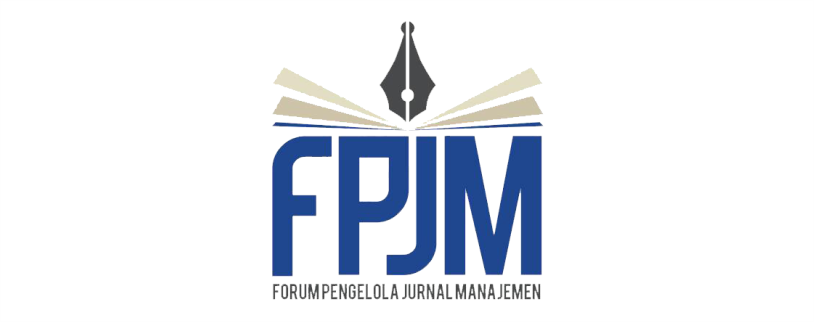Tax Assistant Mediation in The Behavioral Model of Tax Compliance in MSMEs
DOI:
https://doi.org/10.26905/jmdk.v12i2.12455Keywords:
Tax Assistant, MSMEs, Tax Management, Tax Behavioral, Tax ComplianceAbstract
This research examines how tax assistants, tax management, and the final PPh tax incentives (PP 23/2018) might increase Bandung Regency SMEs' tax knowledge and compliance. The quantitative descriptive research technique used simple random selection for MSMEs with active NPWP status at the DJP KPP office in Bandung Regency. This research uses PLS SEM and SEMPLS3 software to analyze 132 MSMEs in agricultural, culinary, and fashion. Tax management mediated by a tax assistant has a 17.7% favorable impact on tax compliance. Tax Assistant improves tax compliance by 0.626, or 62.6%. Tax Management (TMP) improves the Tax Assistant (TEA) by 55.0%. This research concludes that the low level of SME tax compliance in Bandung Regency is more due to a lack of knowledge in techniques for calculating, paying, and reporting MSMEs final income tax (PPh), where a tax assistant becomes very important in aiding management in MSMEs tax compliance, and that the findings are consistent with the Expected Utility Tax Compliance TheoryDownloads
References
Aliyah, S. (2014). Makna Pajak dan Implikasinya Dalam Bingkai Perspektif Wajib Pajak UMKM (Studi Interpretatif pada Wajib Pajak UMKM di Kabupaten Jepara ). Jdeb, 11(1), 81–102.
Allingham, M. G. (1972). Income Tax Evasion : A Theoretical Analysis. Journal of Public Economics, 1, 323–338. https://doi.org/10.4324/9781315185194
Ameur, F., & Tkiouat, M. (2016). A contribution of expected utility theory in taxpayers’ behavior modeling. International Journal of Economics and Financial Issues, 6(3), 1217–1224.
Asrinanda, Y. D. (2018). The Effect of Tax Knowledge, Self Assessment System, and Tax Awareness on Taxpayer Compliance. International Journal of Academic Research in Business and Social Sciences, 8(10). https://doi.org/10.6007/ijarbss/v8-i10/4762
Asyraf, W. M., & Afthanorhan, B. W. (2013). A comparison of partial least square structural equation modeling (PLS-SEM) and covariance based structural equation modeling (CB-SEM) for confirmatory factor analysis. International Journal of Engineering Science and Innovative Technology (IJESIT), 2(5), 198–205.
Aulia Runtika, R. (2016). Persepsi Pelaku Usaha Mikro Kecil Dan Menengah (UMKM) Terhadap Pengenaan Pajak Penghasilan Satu Persen (Studi Kasus Unit UMKM di Kota Malang). 1–18.
Bǎtrâncea, L. M., Nichita, R. A., Bǎtrâncea, I., & Moldovan, B. A. (2012). Tax compliance models: From economic to behavioral approaches. Transylvanian Review of Administrative Sciences, 36, 13–26.
Becker, J.-M., Klein, K., & Wetzels, M. (2012). Hierarchical latent variable models in PLS-SEM: guidelines for using reflective-formative type models. Long Range Planning, 45(5/6), 359e394.
Bello, K. B., & D, I. D. P. (2014). Sains Humanika Review of Models / Theories Explaining Tax Compliance Behavior. 3(2012), 35–38.
Bellová, J., & Å pÃrková, T. (2021). The Theory of Planned Behaviour as a Research Tool an Connection with Tax Law and Economics. Financial Law Review, 21(21 (1)), 1–15. https://doi.org/10.4467/22996834flr.21.001.13284
Bestvinová, V., Homokyová, M., & Horváthová, M. (2013). Financial and Tax Management in Small and Medium Sized Industrial Enterprises. Research Papers Faculty of Materials Science and Technology Slovak University of Technology, 20(Special-Number), 16–20. https://doi.org/10.2478/v10186-012-0007-4
BPS Kabupaten Bandung. (2022). Kabupaten Bandung Dalam Angka - Tahun 2022.
Budiman, N. A., Indaryani, M., & Mulyani, S. (2020). Dampak Covid-19 dan Pemanfaatan Insentif Pajak terhadap Keberlangsungan Usaha pada UMKM Tenun Troso Jepara. Jurnal Manajemen Dan Keuangan, 9(3), 276–285. https://doi.org/10.33059/jmk.v9i3.3035
Coordinating Ministry for Economic Affairs. (2021). Laporan Perkembangan Ekonomi dan Investasi. 1(1), 1–7.
Devos, K. (2014). Factors influencing individual taxpayer compliance behaviour. In Factors Influencing Individual Taxpayer Compliance Behaviour (Vol. 9789400774). https://doi.org/10.1007/978-94-007-7476-6
Dhami, S., & al-Nowaihi, A. (2007). Why do people pay taxes? Prospect theory versus expected utility theory. Journal of Economic Behavior and Organization, 64(1), 171–192. https://doi.org/10.1016/j.jebo.2006.08.006
Direktorat Jenderal Anggaran Kemenkeu. (2021). Laporan Tahunan 2021 - Direktorat Jenderal Anggaran. In Kolaborasi dan Reformasi Penganggaran Perkuat Pemulihan Ekonomi.
Ernest, B.-T., Danie, S., & Nicholas, A. (2022). Determinants of tax compliance costs of small and medium enterprises in emerging economies: Evidence from Ghana. Social Sciences & Humanities Open, 6(1), 100343. https://doi.org/10.1016/j.ssaho.2022.100343
Hair, J. F. J., Hult, G. T. M., Ringle, C., & Sarstedt, M. (2014). A Primer on Partial Least Squares Structural Equation Modeling (PLS-SEM). In Long Range Planning (Vol. 46, Issues 1–2). https://doi.org/10.1016/j.lrp.2013.01.002
Hair, J. F., Ringle, C. M., Sarstedt, M., Hair, J. F., Ringle, C. M., & Sarstedt, M. (2014). PLS-SEM : Indeed a Silver Bullet PLS-SEM : Indeed a Silver Bullet. January 2015, 37–41. https://doi.org/10.2753/MTP1069-6679190202
Hair, J. F., Risher, J. J., Sarstedt, M., & Ringle, C. M. (2018). The Results of PLS-SEM Article information. European Business Review, 31(1), 2–24.
Hardiningsih, P., Januarti, I., Oktaviani, R. M., & Srimindarti, C. (2020). The Determinants of Taxpayer Compliance with Tax Awareness as a Mediation and Education for Moderation. Jurnal Ilmiah Akuntansi Dan Bisnis, 15(1), 49. https://doi.org/10.24843/jiab.2020.v15.i01.p05
Hemawan, S. T. Y. L. D. R. N. Q. S. N. R. A. R. (2021). Theory of Planned Behavior , Information Technology , and Taxpayer Compliance. Jurnal Bisnis Dan Akuntansi, 23(2), 179–190.
Hermawan, A. K., & Ramadhan, M. R. (2020). Pengaruh Perubahan Tarif PPh UMKM Terhadap Kepatuhan Pembayaran Pajak Di KPP Pratama Boyolali. In Simposium Nasional Keuangan Negara 2020 (pp. 44–1115).
Hidayat, M., Fuadah, L., Maryati, S., Khamisah, N., & Hamzah, R. S. (2020). Pendampingan Pengelolaan Pajak Bagi Umkm Di Kota Palembang. Jurnal Abdimas Mandiri, 4(1), 50–54. https://doi.org/10.36982/jam.v4i1.1045
Horodnic, I. A. (2018). Tax morale and institutional theory: a systematic review. International Journal of Sociology and Social Policy, 38(9–10), 868–886. https://doi.org/10.1108/IJSSP-03-2018-0039
Huseynov, F., & Klamm, B. K. (2012). Tax avoidance, tax management and corporate social responsibility. Journal of Corporate Finance, 18(4), 804–827. https://doi.org/10.1016/j.jcorpfin.2012.06.005
Kim, J. H., & Im, C. C. (2017). The study on the effect and determinants of small-and medium-sized entities conducting tax avoidance. Journal of Applied Business Research, 33(2), 375–390. https://doi.org/10.19030/jabr.v33i2.9911
Klaudia, S., Riwayanti, D. R., & Nisa, A. (2017). Menggali Realitas Kepatuhan Wajib Pajak Pemilik Umkm. Jurnal Penelitian Teori & Terapan Akuntansi (PETA), 2(1), 50–64. https://doi.org/10.51289/peta.v2i1.202
Kornhauser, M. E. (2017). A Tax Morale Approach to Compliance : Recommendations For The IRS. Florida Tax Review, 18(8), 601.
Kumaratih, C., & Ispriyarso, B. (2020). Pengaruh Kebijakan Perubahan Tarif PPH Final Terhadap Kepatuhan Wajib Pajak Pelaku UMKM. Jurnal Pembangunan Hukum Indonesia, 2(2), 158–173. https://doi.org/10.14710/jphi.v2i2.158-173
Laguir, I., Elbaz, J., & Laguir, L. (2015). Empirical evidence on SMEs’ tax management. Applied Economics Letters, 22(14), 1133–1137. https://doi.org/10.1080/13504851.2015.1008757
Marandu, E. E., Mbekomize, C. J., & Ifezue, A. N. (2015). Determinants of Tax Compliance: A Review of Factors and Conceptualizations. International Journal of Economics and Finance, 7(9). https://doi.org/10.5539/ijef.v7n9p207
Misra, F. (2019). Tax Compliance: Theories, Research Develompment and Tax Enforcement Models. Accounting Research Journal of Sutaatmadja (ACCRUALS), 03(02), 189–204.
Mohd Rizal Palil. (2011). Factors affecting tax compliance behaviour in self assessment system. African Journal of Business Management, 5(33), 12864–12872. https://doi.org/10.5897/ajbm11.1742
Naufalin, L. R., & Dinanti, A. (2020). Pandemic And Digital Era: Income Tax Of Smes 10 Th ISCA 2020. International Sustainable Competitive Advantage, 2012, 61–70. http://jp.feb.unsoed.ac.id/index.php/sca-1/article/view/1874
Novianti, A. F., & Uswati Dewi, N. H. (2018). An Investigation of the Theory of Planned Behavior and the Role of Tax Amnesty in Tax Compliance. The Indonesian Accounting Review, 7(1), 79. https://doi.org/10.14414/tiar.v7i1.961
Piolatto, A., & Rablen, M. D. (2017). Prospect theory and tax evasion: a reconsideration of the Yitzhaki puzzle. Theory and Decision, 82(4), 543–565. https://doi.org/10.1007/s11238-016-9581-9
Presiden Republik Indonesia. (2021). Undang-Undang Nomor 7 Tahun 2021 Tentang Harmonisasi Peraturan Perpajakan (pp. 1–119). Direktorak Jenderal Pajak - Republik Indonesia.
Putra, A. F., & Osman, A. H. (2019). Tax compliance of MSME’s taxpayer: Implementation of theory of planned behavior. Journal of Contemporary Accounting, 1(1), 1–10. https://doi.org/10.20885/jca.vol1.iss1.art1
Putri Sekti Ari, D. (2019). Analisis Perilaku Patuh Pajak Orang Pribadi Berdasarkan Theory of Planned Behavior Dan Kepercayaan Terhadap Pemerintah. Profit, 13(01), 32–38. https://doi.org/10.21776/ub.profit.2019.013.01.4
Sarwono, H. A. (2015). Profil Bisnis Usaha Mikro, Kecil Dan Menengah (UMKM). In Bank Indonesia dan LPPI.
Slemrod, J. (2008). Tax Compliance and Tax Evasion. The New Palgrave Dictionary of Economics, September, 167–171. https://doi.org/10.1057/9780230226203.1674
Taing, H. B., & Chang, Y. (2021). Determinants of Tax Compliance Intention: Focus on the Theory of Planned Behavior. International Journal of Public Administration, 44(1), 62–73. https://doi.org/10.1080/01900692.2020.1728313
Torgler, B., Demir, I. C., Macintyre, A., & Schaffner, M. (2008). Causes and Consequences of Tax Morale: An Empirical Investigation. Economic Analysis and Policy, 38(2), 313–339. https://doi.org/10.1016/S0313-5926(08)50023-3
Ullah, H., Sawyer, A. J., Lopes, C., Borrego, A. C., Chau, G., & Leung, P. (2009). A critical review of Fischer tax compliance model: A research synthesis A Taxonomy of t he Tax Compliance Lit erat ure: Furt her Findings, Problems and Prospect s-M… Tax Noncompliance in an Int ernat ional Perspect ive: a Lit erat ure Review A critical re. Journal of Accounting and Taxation, 1(2), 34–040. http://www.academicjournals.org/JAT
Wenzel, M. (2005). Misperceptions of social norms about tax compliance: From theory to intervention. Journal of Economic Psychology, 26(6), 862–883. https://doi.org/10.1016/j.joep.2005.02.002
World Bank Group. (2021). Increasing Tax Compliance For SMEs in Indonesia. 1–4. https://documents1.worldbank.org/curated/en/206281616476835926/pdf/Increasing-Tax-Compliance-for-SMEs-in-Indonesia.pdf
Downloads
Additional Files
Published
How to Cite
Issue
Section
License
Authors who publish with this journal agree to the following terms:
(1)Â Copyright of the published articles will be transferred to the journal as the publisher of the manuscripts. Therefore, the author confirms that the copyright has been managed by the journal.
(2) Publisher of Jurnal Penelitian is University of Merdeka Malang.
(3) The copyright follows Creative Commons Attribution–ShareAlike License (CC BY SA): This license allows to Share — copy and redistribute the material in any medium or format, Adapt — remix, transform, and build upon the material, for any purpose, even commercially.












